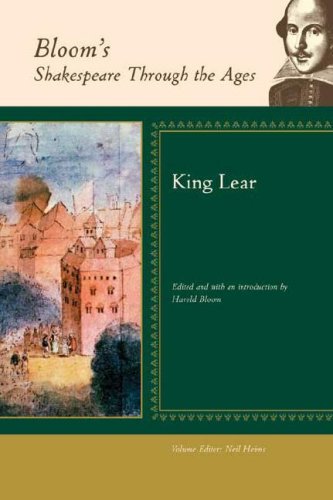

Most ebook files are in PDF format, so you can easily read them using various software such as Foxit Reader or directly on the Google Chrome browser.
Some ebook files are released by publishers in other formats such as .awz, .mobi, .epub, .fb2, etc. You may need to install specific software to read these formats on mobile/PC, such as Calibre.
Please read the tutorial at this link: https://ebookbell.com/faq
We offer FREE conversion to the popular formats you request; however, this may take some time. Therefore, right after payment, please email us, and we will try to provide the service as quickly as possible.
For some exceptional file formats or broken links (if any), please refrain from opening any disputes. Instead, email us first, and we will try to assist within a maximum of 6 hours.
EbookBell Team

0.0
0 reviews
ISBN 10: 0791098419
ISBN 13: 9780791098417
Author: Harold Bloom, Neil Heims
Part I: The Play in Its Own Time and Early Receptions
Chapter 1: The Play's Initial Impact and the Nahum Tate Adaptation
An essay discussing the reception of the play in the 17th century and the massive influence of Nahum Tate's 1681 adaptation, which gave the play a happy ending and dominated the stage for over 150 years.
Example Essay: "Tate's Lear and the Taste of the Restoration"
Chapter 2: Dr. Johnson's Discomfort with the Ending
A classic excerpt from Samuel Johnson's criticism, articulating his famous objection to the play's tragic conclusion as a violation of poetic justice.
Example Essay: "The Pain of Cordelia's Death" (Excerpt from Samuel Johnson's Preface to Shakespeare)
Part II: The Romantic Rediscovery: A Tragedy Unfit for the Stage
Chapter 3: Charles Lamb on the "Un-stageable" Quality
An excerpt from Lamb's influential essay, arguing that the true power of King Lear can only be appreciated in the reading, not in performance.
Example Essay: "On the Tragedies of Shakespeare, Considered with Reference to their Fitness for Stage Representation" (Excerpt from Charles Lamb)
Chapter 4: Coleridge and the Sublime Madness
An essay analyzing Coleridge's critical insights into Lear's madness and the philosophical depth of the play.
Example Essay: "Lear's Mind as a Chaotic Cosmos" (Excerpt from S.T. Coleridge's Lectures on Shakespeare)
Part III: The Moral and Philosophical Tragedy
Chapter 5: A.C. Bradley's Character-Based Analysis
An excerpt from Bradley's seminal work, Shakespearean Tragedy, focusing on the characters of Lear and the Fool, and the play's psychological depth.
Example Essay: "The Character of Lear and the Fool" (Excerpt from A.C. Bradley)
Chapter 6: G. Wilson Knight and the Visionary World
An essay that interprets the play as a symbolic universe rather than a realistic narrative, focusing on its poetic imagery and cosmic themes.
Example Essay: "The Lear Universe" (Excerpt from G. Wilson Knight's The Wheel of Fire)
Chapter 7: T.S. Eliot and the Play's Moral Vision
A modern excerpt from Eliot, discussing the play's moral and religious dimensions and its place within the broader Western canon.
Part IV: The Modern and Contemporary Perspectives
Chapter 8: A Psychoanalytic Reading of the Family
An essay that applies psychoanalytic theory to the relationships between Lear and his daughters, exploring themes of filial ingratitude and the trauma of aging.
Example Essay: "The Psycho-Sexual Dynamics of the Lear Family"
Chapter 9: The Play in Performance
An essay that shifts focus from the text to the stage, analyzing key theatrical interpretations by directors and actors, from Olivier and Gielgud to Brook and subsequent productions.
Chapter 10: A Feminist Reading of the Daughters
A modern critical essay that re-evaluates the roles of Goneril, Regan, and Cordelia, challenging traditional patriarchal interpretations.
Chapter 11: The Politics of Nothing
A deconstructionist or Marxist-inspired essay exploring the play's treatment of power, property, and social justice.
Chapter 12: An Anthropological View of the Fool
An essay that examines the role of the Fool through the lens of social anthropology and folklore.
synopsis of king lear
cordelia king lear
edmund king lear
cast of king lear 2018
when was king lear written
kenneth branagh king lear
Tags: Harold Bloom, Neil Heims, Bloom, Shakespeare